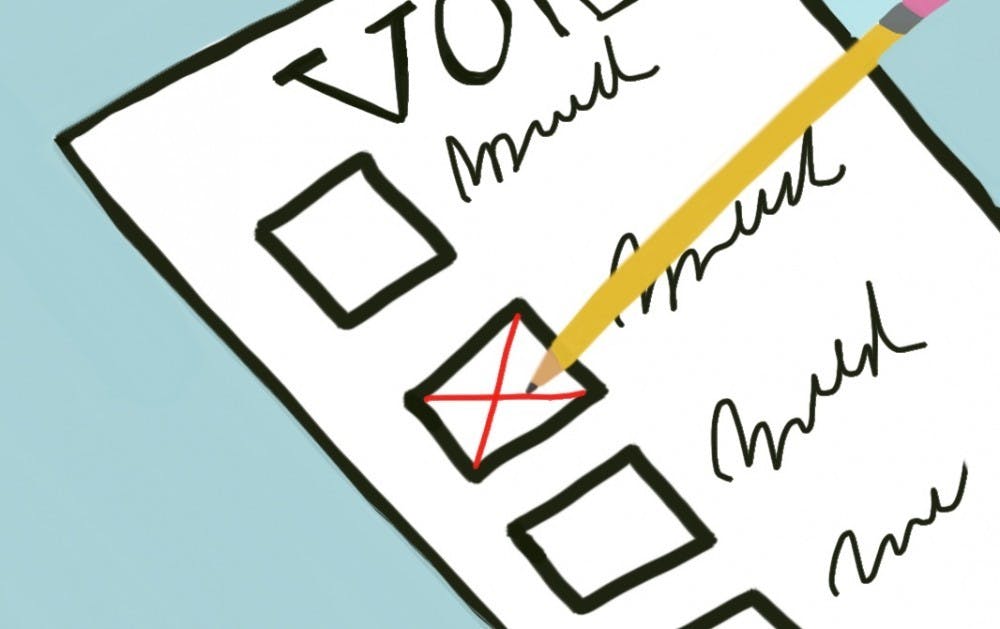Senate Concurrent Resolution 1015 just passed the Arizona Senate by a vote of 16-13-1 on Tuesday. If officially adopted by the House of Representatives and Governor Hobbs, the resolution would dramatically alter the existing ballot initiative landscape.
SCR 1015 allegedly solves this embattled reality by demanding 10% approval from each legislative district on initiatives, essentially making it impossible for Arizona citizens to put anything that could cause slight controversy on the ballot. It’s a muzzle meant to keep the legislature running the way it is without inviting or being informed by direct input from the people it serves.
On paper, it’s a good faith effort to promote statewide buy-in on ballot measures. In reality, SCR 1015 is a wolf in sheep’s clothing, claiming to enhance democracy while stabbing it in the back.
Currently, an initiative needs a number of signatures to equal 10% of the people who voted in the last governmental election in order to make it on the ballot. Under SCR 1015, introduced by Sen. J.D. Mesnard, R-Chandler, an initiative would need signatures from 10% of each legislative district rather than from the state as a whole.
This means that if an initiative is unfavorably received in even one district, it won’t make it on the ballot. Although this arguably dilutes the power of larger districts, the origins of SCR 1015 are more political than practical.
“Republicans and the people who support the Republican Party, the business groups, just don’t like what the voters are doing with the initiative,” said David Berman, a senior research fellow at the Morrison Institute for Public Policy at ASU. “You (now) have to go through all the districts which greatly increases the workload.”
Francesca Martin, a freshman studying political science, attests to this increased difficulty, having verified and gathered ballot measure signatures for over two years.
“It discourages people from even trying to collect signatures,” Martin said. “Putting something on the ballot is (already) a really difficult process, so I think my initial reaction is that (SCR 1015) really does thwart the democratic process.”
Ballot initiatives also tend to conflict with business interests, such as proposing laws that increase minimum wage and taxes, progressive policies that students often vote for.
“They (businesses) don’t like having the state be anti-business," Berman said. “The idea is to slowly make it more difficult so that you wind up making the use of the initiative process one that can only be done by financed and organized organizations and makes it more difficult for a small group that wants to put something on the ballot.”
This potential death of grassroots signature gathering is only one of the ramifications of SCR 1015. Martin also fears the bill’s geographic redistribution of power.
“It is allowing one legislative district to dictate the rest of the state’s opinion,” Martin said.
More cynically, SCR 1015 is a byproduct of politicians’ condescension toward direct input from voters.
“The party that has the majority in the legislature doesn’t see any reason why anyone else should make laws,” Berman said. “They seem to think that it’s all right that the voters choose them and they make good judgments there, but (the voters) can’t make good judgments on legislation.”
This philosophical conflict about who should propose laws suddenly turns the humble initiative into a high-stakes power struggle between the elected body and its electors, especially when it comes to contentious issues like school vouchers, which use taxpayer dollars to fund families' private school tuition.
“The legislature just doesn’t like to have voters vote on vouchers because they turn them down,” Berman said. “The teachers organize and reject anything the legislature does. (The legislature) doesn’t really want to put it on the ballot because they’re going to lose.”
Worse, SCR 1015 pays lip service to statewide buy-in while actually fracturing and undermining it. Arizona is a whole state, not warring factions. Being an Arizonan is what every Arizona resident has in common, transcending the arbitrary district lines that the legislature uses to divide us.
10% from a general election counts us all, while 10% from each district radically reduces our power to decide what our laws look like. Decreasing our agency is the first step in undermining our democracy, so make no mistake about SCR 1015’s real intentions.
Edited by Kate Duffy, Jasmine Kabiri and Anusha Natarajan.
Reach the columnist at mosmonbe@asu.edu and follow @miaosmonbekov on Twitter.
Editor's note: The opinions presented in this column are the author's and do not imply any endorsement from The State Press or its editors.
Want to join the conversation? Send an email to opiniondesk.statepress@gmail.com. Keep letters under 500 words and be sure to include your university affiliation. Anonymity will not be granted.
Like The State Press on Facebook and follow @statepress on Twitter.




